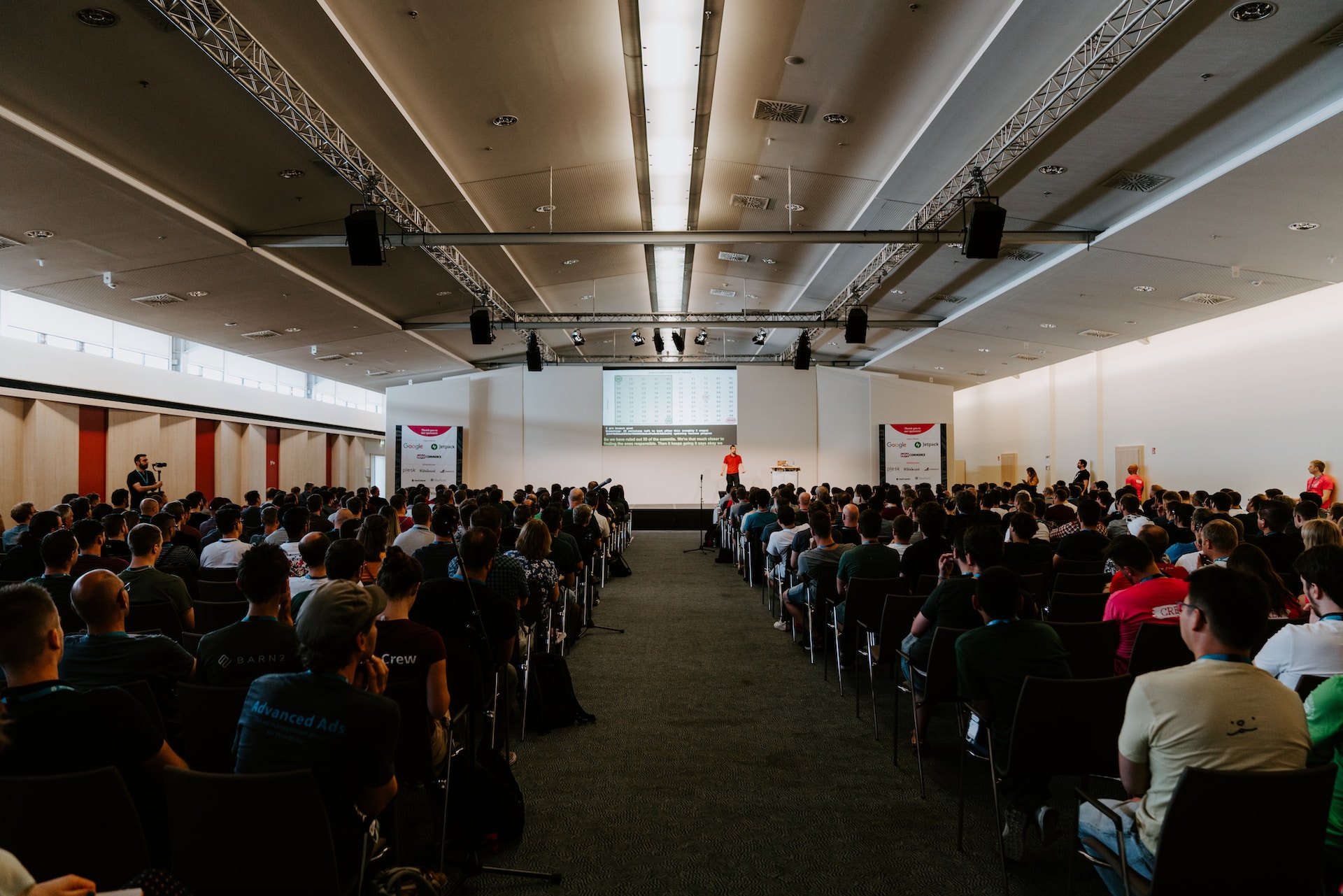Events have become an integral part of the modern business world. From trade shows and conferences to product launches and networking events, businesses across the globe rely on events to connect with their customers, partners, and industry peers.
However, the event industry is not just about the glitz and glamor of the show. Still, it’s also about the complex logistics, planning, and execution that goes behind the scenes. To navigate this industry, one needs to be familiar with its language and jargon, which can be daunting for those new to it.
At Happenn, we understand the importance of event industry jargon and how it can make or break an event. Therefore, we have compiled this event vocabulary guide to help you navigate the industry-specific vocabulary and definitions. Whether you’re a seasoned event professional or a newbie in the industry, this guide will equip you with the tools to communicate more effectively, understand event planning better, and, ultimately, make your event a success.

(Image: Copyright © Product School, Unsplash)
In-Person Event
An in-person event is a physical gathering of individuals in a shared location. In-person events allow attendees to engage with one another, network, and learn in a face-to-face environment. Examples of in-person events include conferences, trade shows, seminars, and product launches.
Virtual Event
A virtual event is an online gathering of individuals in a virtual environment. Virtual events can be held in real-time or pre-recorded, allowing attendees to connect and engage with one another from anywhere in the world. Examples of virtual events include webinars, online workshops, and virtual conferences.
Hybrid Event
A hybrid event is a combination of an in-person and a virtual event. Hybrid events provide the best of both worlds, allowing attendees to participate in person or virtually. Hybrid events have become increasingly popular due to their flexibility, allowing attendees who cannot attend in person to engage and participate.
Business Matchmaking
Business matchmaking is the process of connecting individuals or businesses with potential partners or customers. The goal of business matchmaking is to identify opportunities for collaboration and growth.

(Image: Copyright © Chris Montgomery, Unsplash)
Webinar
A webinar is a live or pre-recorded online seminar that provides attendees with educational or informative content. Webinars allow attendees to participate from anywhere worldwide, making them a popular tool for businesses looking to share their expertise and knowledge with a broader audience.
Email Blasting
Email blasting is the process of sending a large number of emails to a targeted audience to promote a product or service. Email blasting can be an effective tool for reaching many individuals quickly and efficiently.
RSVP
RSVP stands for “Répondez s’il vous plaît,” which translates to “please respond.” RSVP is typically used on event invitations to request that attendees respond and indicate whether or not they will be attending the event.
Metaverse
The metaverse is a virtual space that exists as an extension of the physical world. The metaverse allows individuals to interact with one another and digital objects in a shared online space. The metaverse concept has gained popularity recently as virtual reality and online communities have become more prevalent.

(Image: Copyright © Evangeline Shaw, Unsplash)
Networking
Networking is building relationships and connections with individuals in a particular industry or field. Networking can occur at events, online, or through other professional or social settings. Building a solid network is essential for professional growth and career advancement.
Agenda
An agenda lists items or activities planned for an event or meeting. A schedule gives attendees a clear understanding of what will be covered and the order in which activities will occur.
ROI
ROI stands for “return on investment.” ROI measures the profitability of an investment or campaign, considering the cost of the investment and the revenue generated. Measuring ROI is essential for businesses looking to assess the effectiveness of their marketing and advertising efforts.
Leads
Leads are potential customers or clients who have expressed interest in a product or service. Leads are typically generated through marketing or advertising efforts and are essential to sales. Converting leads into customers is vital for businesses looking to grow and expand.

(Image: Copyright © Sincerely Media, Unsplash)
By mastering the jargon of the event industry, you can feel more confident and knowledgeable in your role as an event planner or professional.
But even with a strong vocabulary and understanding of the terminology, executing successful events can be complex and demanding. Happenn is here to help with various robust event tech software solutions to streamline your planning process and enhance the attendee experience. Whether you’re planning an in-person, virtual, or hybrid event, our registration, check-in, polling, and matchmaking tools can help you achieve your goals.
Contact us at hello@happenn.com or book your free event consult meeting with our experts by filling out the contact form here.
(Featured image: Copyright © Claudio Schwarz, Unsplash)

